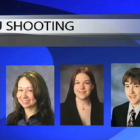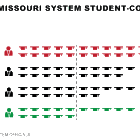News Story
Emergency text alerts not reaching most people on University of Wisconsin campuses
|
Only three of the University of Wisconsin System’s 13 four-year campuses — Platteville, Stevens Point and Parkside — have more than half of students, faculty and staff signed up to receive text alerts, according to a review by the Wisconsin Center for Investigative Journalism.








